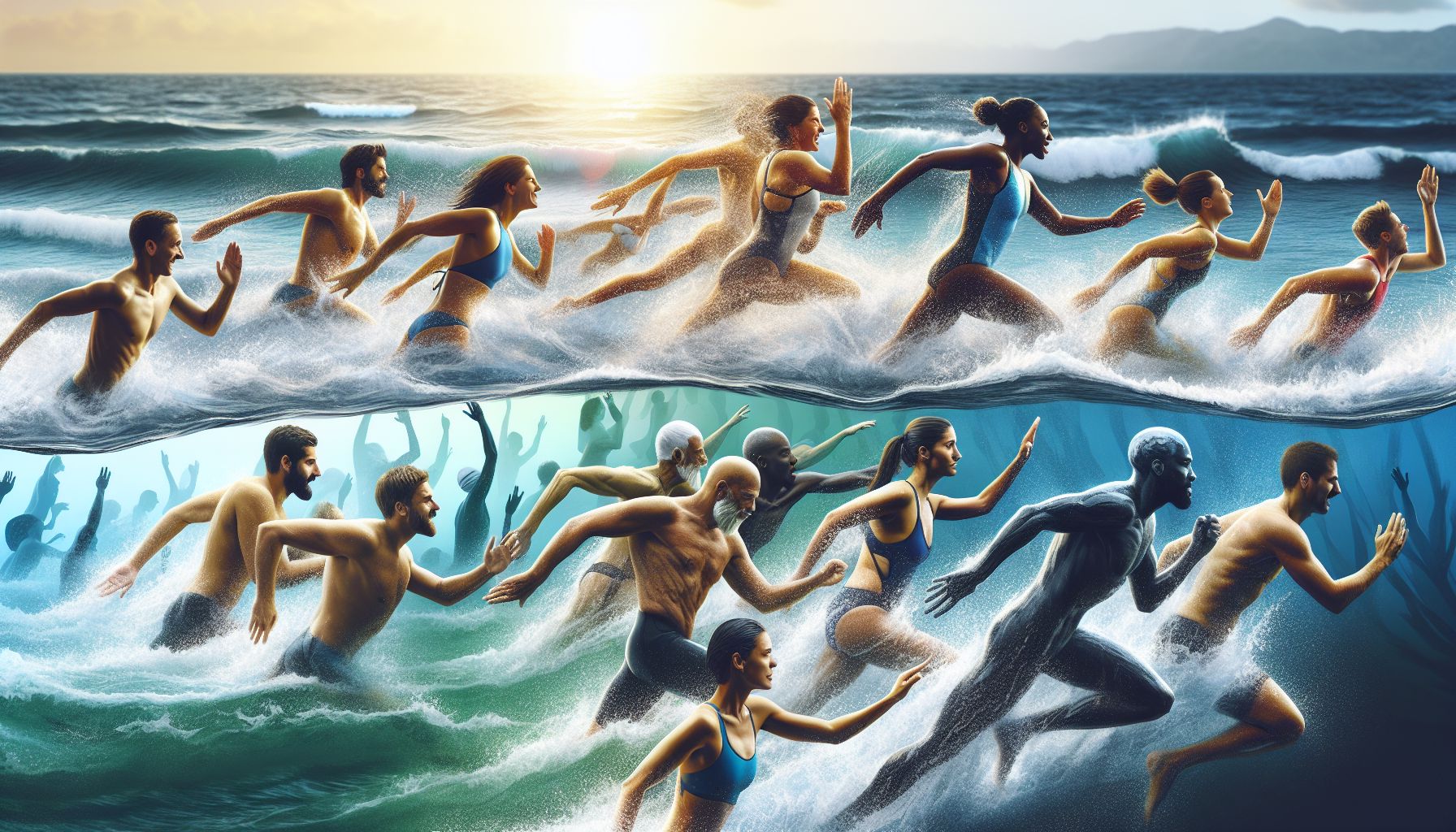Open water swimming is a pursuit that captures the imagination and spirit of adventure in people all around the world. Distinct from swimming in the confines of a pool, open water swimming generally takes place in oceans, lakes, rivers, and other large bodies of water. The activity presents swimmers with both unique joys and specific challenges that can test the limits of their abilities and drive them to greater personal achievements. In this expansive overview, we’ll dive into the intriguing world of open water swimming, exploring its benefits, techniques, safety tips, and the mental and physical demands it places on participants.
The Allure of Open Water Swimming
Open water swimming has a long and storied history that can be traced back to ancient civilizations. It has been part of the Olympic Games since 1896 for men and since 1912 for women. More recently, the 10K marathon swim was added to the Olympic program in 2008, bringing further prestige and attention to the discipline.
The Benefits
One of the most compelling attractions of open water swimming is its potential health benefits. Swimming in general is an excellent cardiorespiratory workout, but open water swimming adds several unique advantages:
- Full Body Workout: Moving against the resistance of water engages nearly every major muscle group, ensuring a balanced workout.
- Calorie Burn: The extra effort required to swim in open water helps burn a significant number of calories.
- Mental Health: The natural environments offer a serene backdrop that can reduce stress and foster relaxation.
- Improved Technique: Open water challenges swimmers to refine their technique to swim more efficiently.
Adventure and Community
For many, the adventure of swimming alongside marine life, under the open sky, and through varying water conditions is exhilarating. Open water swimming also has a strong community aspect, with clubs and group swims being popular ways to connect socially and share experiences.
The Challenge
The unpredictable nature of open water settings poses challenges not found in controlled pool environments. Swimmers must learn to cope with:
- Variable Conditions: Weather, current changes, and water temperature all affect swimming performance and safety.
- Navigation: Without clear lane markings, swimmers need to learn sighting techniques to stay on course.
- Endurance: Open water events and swims often cover longer distances than traditional pool races, demanding greater stamina.
Training and Technique
Successful open water swimmers must develop strong navigation skills and adjust their swimming techniques for efficiency and endurance. Freestyle is commonly used, but variations may be necessary to tackle waves, visibility, and changing water density.
Drafting, much like in cycling, can conserve energy by swimming in the slipstream of another swimmer. Bilateral Breathing is another key technique that helps maintain a straight course and balance stroke mechanics in changing wave conditions.
Safety First
Safety is a crucial aspect of open water swimming. Risks such as hypothermia, dehydration, wildlife encounters, and fatigue should be taken seriously. Here are some safety tips for anyone keen to try open water swimming:
- Swim With a Buddy: Always swim with a friend or in a group for added safety.
- Know the Environment: Study local currents, weather patterns, and marine life.
- Wear Bright Colors: Use brightly colored caps and suits to be visible to boaters and rescuers.
- Gradual Acclimation: Get used to cold water gradually to reduce shock to the system.
- Hydration and Nutrition: Carry fluids and possibly energy gels for longer swims.
Organized Events
For those interested in a structured challenge, there are a variety of open water races and events around the world. From the iconic English Channel crossing to the clear waters of the Midmar Mile in South Africa, there’s an event for all skill levels.
Training for Open Water
Swimmers looking to transition from the pool to open water should incorporate specific training techniques. This can include practicing in various bodies of water and in different weather conditions to become acclimated and comfortable.
Mental Preparation
Coping with the isolation and potentially intimidating vastness of open water needs mental toughness. Visualization, positive self-talk, and goal-setting are useful mental training techniques.
Conclusion
Open water month presents a world rich in opportunities for personal growth, health benefits, and the pure thrill of being immersed in nature. With the right training, mental preparation, and safety practices, swimmers of all levels can take to the open waters for an ultimately rewarding experience.
Sources
Here are a few resources for further exploration of open water swimming:
- FINA Open Water Swimming Rules – The official rules and guidelines set forth by the international governing body for aquatic sports.
-
Openwaterpedia – A comprehensive online resource covering all aspects of open water swimming, including events, swimming locations, and safety tips.
-
U.S. Masters Swimming – An organization that supports adult swimming, including open water, and provides resources for training and competition.
- USMS.org
“`markdown
The Joys and Challenges of Open Water Swimming
Discover the exhilarating world of open water swimming. Learn about the health benefits, training techniques, safety tips, and the mental preparation required to take on this adventurous sport.
The Allure of Open Water Swimming
The Benefits
- Full Body Workout
- Calorie Burn
- Mental Health
- Improved Technique
Adventure and Community
The Challenge
Training and Technique
- Drafting
- Bilateral Breathing
Safety First
- Swim With a Buddy
- Know the Environment
- Wear Bright Colors
- Gradual Acclimation
- Hydration and Nutrition
Organized Events
Training for Open Water
Mental Preparation
Conclusion
Embrace the challenges and joys of open water swimming for a rewarding outdoor adventure.
Sources
“`
By diving deep into the subject of open water swimming, this comprehensive guide touches on every aspect needed to understand and appreciate the sport. Whether you’re a seasoned swimmer or a newcomer curious about taking to open water, the information shared here is your first step towards a marvelous aquatic journey.
